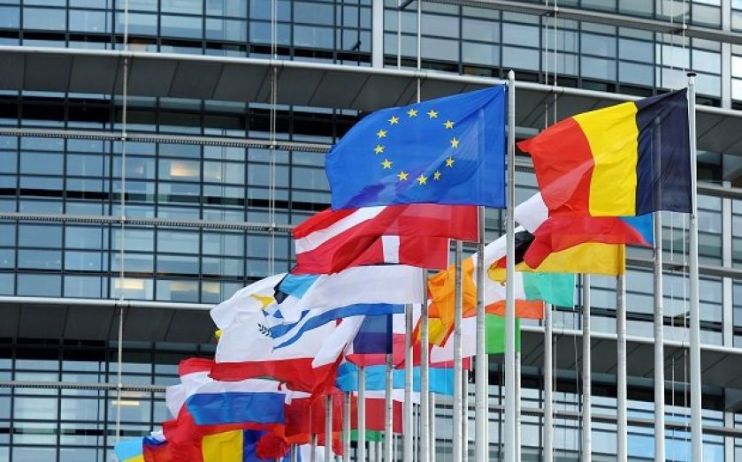EU plans to seize Russian energy revenues as conflict escalates in Ukraine

The European Union (EU) is planning to seize a portion of Russian energy revenues from gas and oil imports to pay for the future rebuilding of Ukraine.
Money will be diverted from Russian energy companies to a special account set aside to be used for aid to the war-torn country at a later date.
European Commission President Ursula von der Leyen revealed the escalation in sanctions as EU ambassadors met to discuss a ban on Russian coal imports and a possible timetable for a subsequent oil embargo.
She said: “These sanctions will not be our last sanctions. Yes, we have now banned coal but now we have to look into oil. And we’ll have to look into the revenues that Russia gets from these fossil fuels. We really have to make an effort.”
The measures follow reports of civilian executions in Ukraine, and Russian President Vladimir Putin enforcing a rouble-payment system on overseas buyers of Kremlin-backed fossil fuels.
Overall, the trading bloc has spent €19.8bn on Russian oil, coal and gas since the country invade Ukraine – considerably more than the EU has provided to Kyiv.
Josep Borrell, the EU’s foreign policy chief, said: “We have given Ukraine one billion euros . . . but a billion euros is what we pay Putin every day for the energy he provides us.”
EU weighs up oil and gas sanctions as conflict in Ukraine continues
Sentiment within the bloc’s administration towards energy sanctions appears to be shifting, with leaders increasingly open to further measures against Russia.
The first raft of sanctions on financial institutions, the central bank, and multiple oligarchs has crippled the country’s economy, but has not discouraged Russia from continuing its brutal Ukraine.
Charles Michel, chairman of EU leaders, warned the EU will have to introduce measures against imports of Russian oil and even gas at some point to put sufficient pressure on Russia to end its invasion.
He told European Parliament: “I think that measures on oil and even gas will also be needed sooner or later.”
The EU remains split over the prospect of oil and gas sanctions on Russia -with the bloc dependent on the country for 40 per cent of its natural gas and a third of its oil imports.
It has brought in measures to maintain gas supplies at 90 per cent of capacity ahead of next winter and has relied on liquefied natural gas (LNG) deals with the US to stave off supply shortages in the past few months.
Lithuania made the unilateral decision to end its dependence on Russian gas, however Germany, Netherlands and Austria still oppose further sanctions.
Meanwhile, German industry is showing signs of adapting to the expected coal ban.
The German coal importers’ group VDKi revealed yesterday the country should be able to find alternatives to Russian hard coal imports by the peak demand winter season
However, there will be technical issues and increased costs.
The association’s chairman, Alexander Bethe, told Reuters: “Coal procurement along sea routes can be changed, however at higher prices. A conversion to alternative coal qualities is not unproblematic for the power plants. However, it should be possible to completely dispense with Russian coal by next winter.”
Germany imported around 18m tonnes of coal for steelmaking and power generation from Russia last year, relying on the country for 53 per cent of total supply.
VDKi revealed bottlenecks in Russian supplies since late last year prompted importers to seek alternatives, including from Australia, Colombia, Indonesia, Mozambique, South Africa and the United States.
Southwest Germany’s EnBW has announced it has stocks that “will reach far into the current year.”
The group imported 3.6m tonnes of Russian coal last year for its power and heat operations – representing 86 per cent of its total intake..
It is now speeding up purchases from alternative producer countries.
Ukraine suffers damage to gas transit operation
Meanwhile, Ukraine’s gas transit operator has reported damages totalling hundreds of millions of euros since Russian forces invaded Ukraine.
Sergiy Makogon, CEO of the operator OGTSU, wrote on Facebook that the company will continue to distribute gas to Ukrainian consumers.
He revealed three main gas pipelines had been damaged, while two gas distribution stations had been destroyed.
A further 48 gas distribution stations had stopped operations and four compressor stations had been seized by Russian forces.
Makogon said: “Our material damage already amounts to hundreds of millions of euros. To date, 300,000 households have been left without gas supply.”
Carrying out repairs would be challenging, because of the inability to gain access to all parts of the gas transit system.
He revealed its employees are continuing to repair damage on the pipeline “often under fire” from Russian forces.